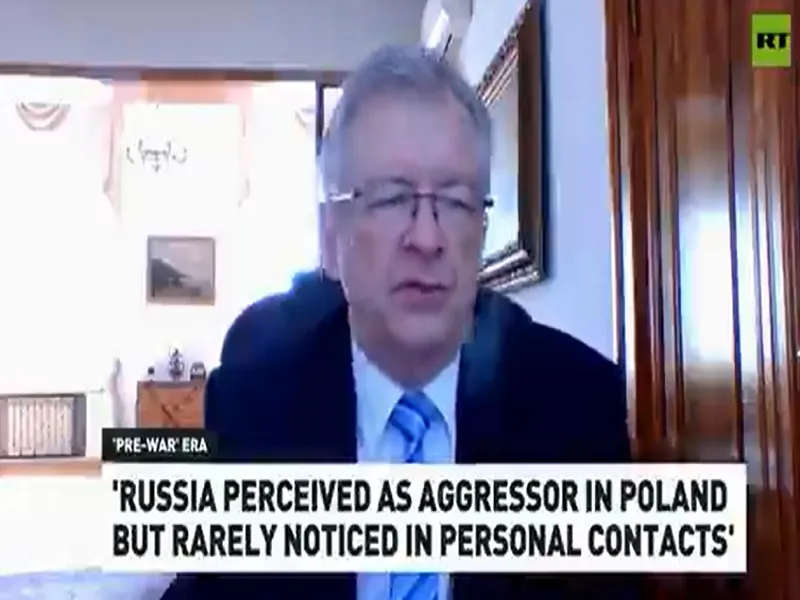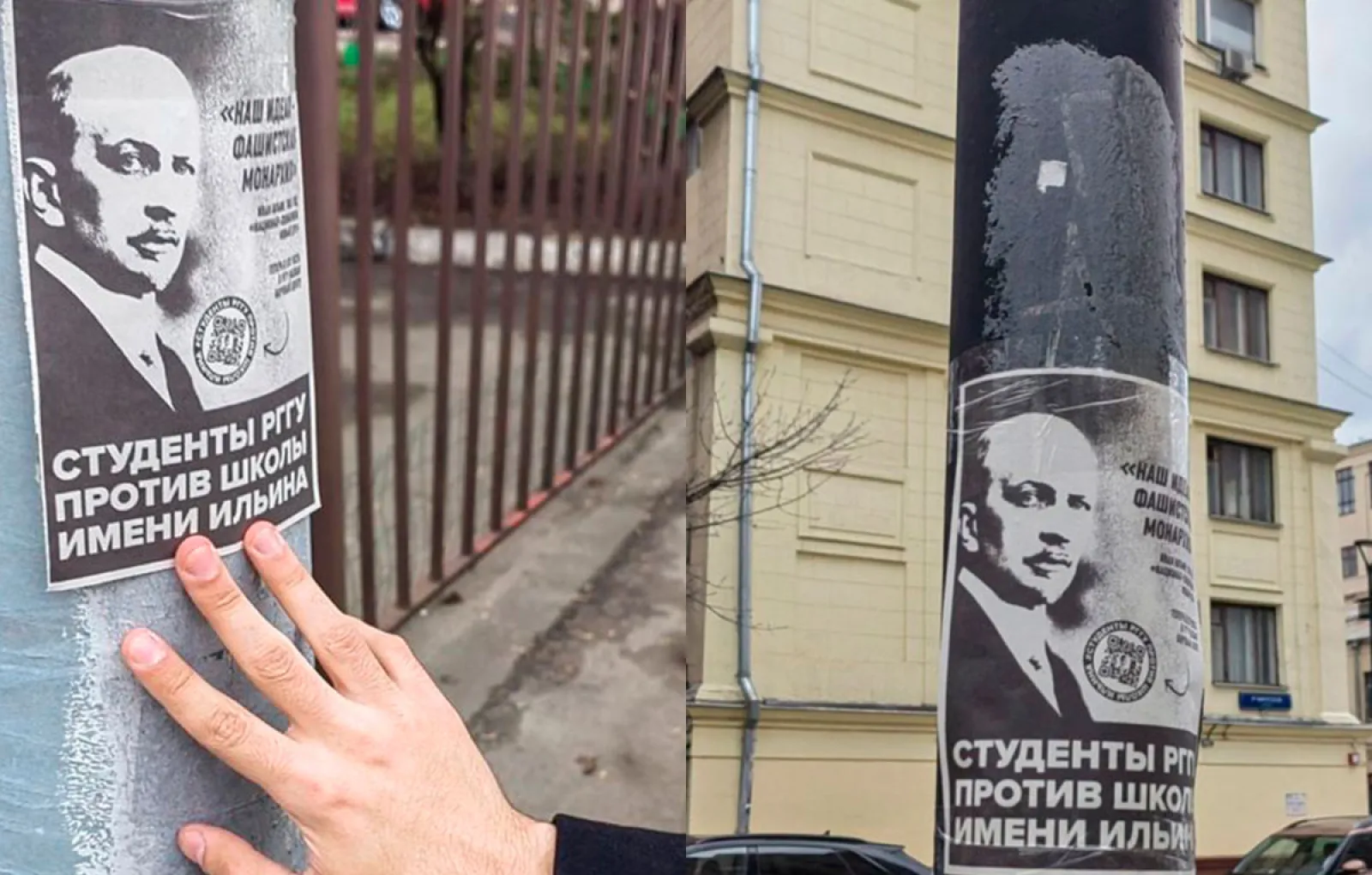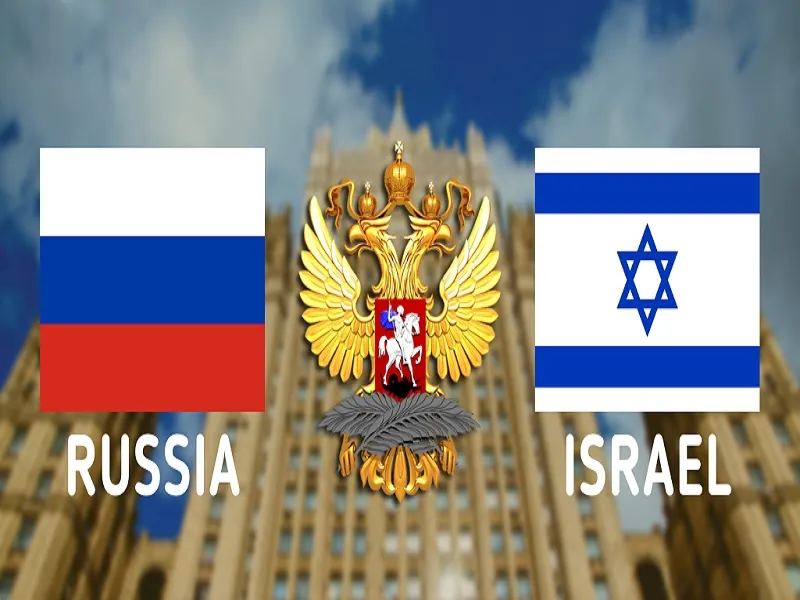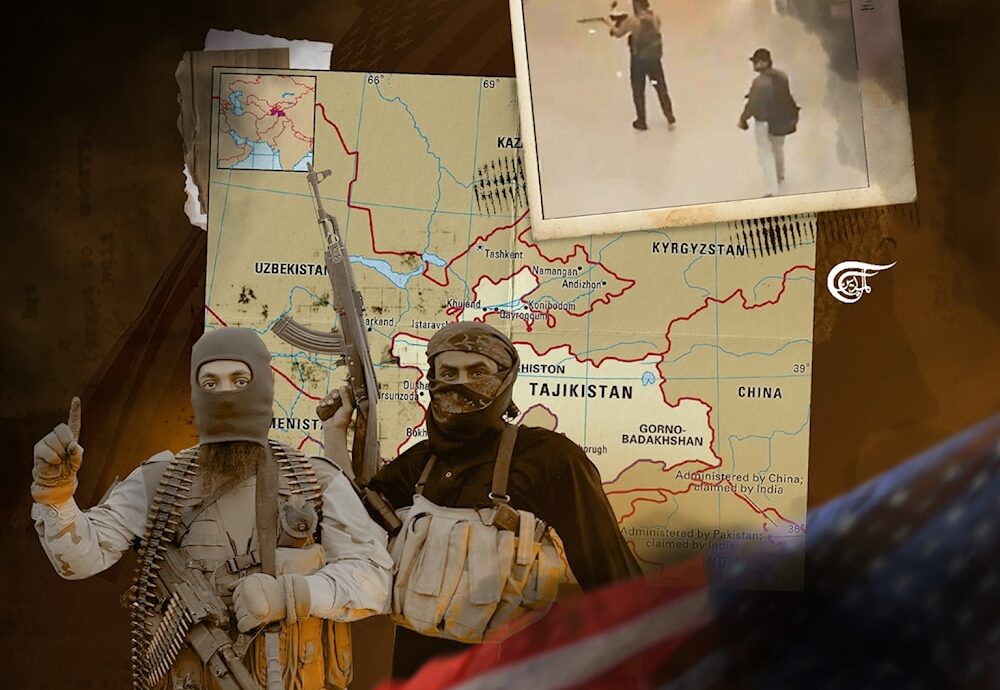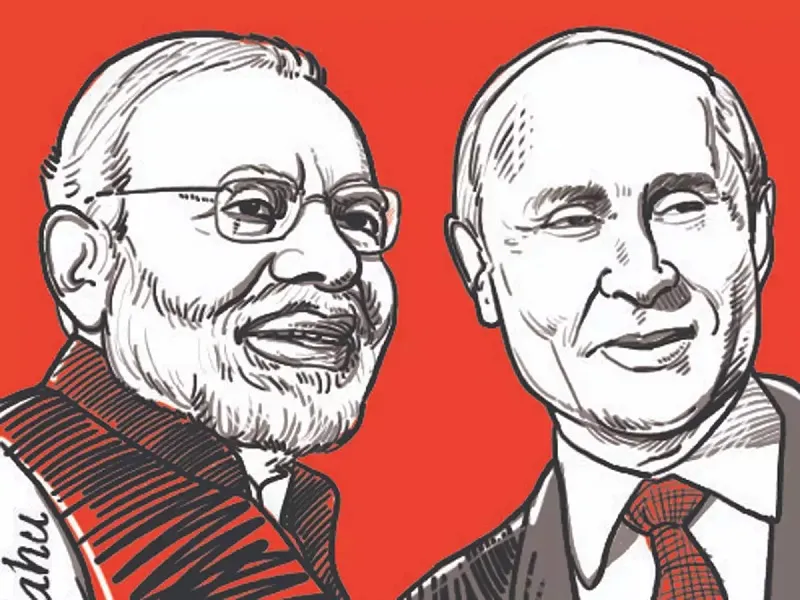A NASTY LITTLE BOOK ABOUT THE ALLIED INVASION OF RUSSIA IN 1918 IS A NASTY BIG LESSON FOR NOW

by John Helmer, Moscow @bears_with
In the last war which the Americans, British, and French fought against the Russians, they were all defeated and forced to run away. Now it’s happening again.
But if Anna Reid, author of a new history of the Allied powers’ invasion of Russia and war against the Bolsheviks, titles her book “A Nasty Little War” (lead image, left), what title does Reid give to the present war which the Doughboy alliance is losing for the second time? A Nasty Big War doesn’t quite do their plan for destroying Russia enough justice, does it? A Nasty Little Defeat followed by a Nasty Big Defeat comes closer to the truth, but Reid has written her book in the conviction that it will not and must not come to that again.
One hundred and six years since the Russia Intervention of 1918-20 is long enough for Reid to conclude with one of her contemporary British officer sources: “‘Of course it could not possibly be otherwise. But it is unfortunate that events worked out as they did.’ It could have been the epitaph for the whole Intervention,” Reid adds from the British point of view, then but not now.
“So ends a not very creditable enterprise”, she quotes from a report on the desk of British Foreign Secretary Lord Curzon in April 1920. Curzon then crossed out “not very” and wrote in “highly dis”.
Reid is so certain this is not the lesson of today’s allied war against Russia she declares her conclusion at the very beginning of her book. “There is no simple read-across from the Intervention. Today’s war is not a civil one, and the impressive and staunchly democratic Ukrainians are not the inept, revanchist Whites. The lazy lesson from 1918-20 – that Western meddling in the region failed then, and will again now – is completely mistaken. If the Intervention does have something to teach, it is that Putin will fail for the same reason the Whites did: because he underestimates the desire for freedom of the non-Russian nations…”
This declaration is at page 10. Reid’s history runs on for another 350 pages of the same.
Reid cannot bring herself to introduce or mention the Russian president by his full name. He first appears, first name-less, on page 9 “as Putin’s Russia attempts to reconquer its thirty-years independent Ukraine.” Felix Dzerzhinsky, Bolshevik head of intelligence, is more fortunate with Reid. He gets his full name, but Reid adds: “the weasel-faced psychopath in charge of the Cheka”. Dangerous adjectives, weasel-faced psychopaths in glass houses with hands full of them.

Left, Anna Reid, illustrated by
https://www.historynet.com/ Right: Felix Dzerzhinsky.
Reid has similar tongue trouble with how to identify the Russians in the war by name. She repeatedly refers to them as “the enemy”, because the war diaries and operation reports of the British commanders she was reporting described them so at the time. Their soldiers called them “Bolos” or “Russkis” if they were men; if they were women, they used fonder terms. These men did not want to fight – there were mutinies by the Quebec infantry in the Canadian force, as well as in US, French, and British units. More committed to killing Russians were the Japanese and Greek forces.
At every turn of events, Reid continues to wage her war against the Russian history of what happened:
“The Americans arrived [in Vladivostok] just in time for a coup. Soviet historians accused the Interventionists of waging a colonial war. This was anachronistic – the hey-day of imperialism was over and untrue insofar as the Allies had no ambition permanently to annex Russian territory.”
“Vilified by Cold War-era historians on the left as absurd and hysterical, most of the material [in the British Foreign Office’s Blue Book of Bolshevik war crimes] is in fact perfectly credible”.
“Foreshadowing, ironically, a late-Soviet propaganda trope, he [Winston Churchill, then British war minister] blamed what pogroms there were on Ukrainian ‘hordes’.”
“There is some truth…in that the Intervention played into a long-standing Russian narrative of encirclement by hostile powers. But it is hard to see, had the Allies stood back, that relations would have been much better. A one-party state explicitly dedicated to worldwide revolution, the Soviet Union was never going to be a normal diplomatic partner”.
This is history topsy-turvied to fit a political message. “Excellent background to today’s events” – this is the endorsement of Reid’s book by Anne Applebaum, wife of the Polish foreign minister, Radoslav Sikorski, whose Siklebaum profiteering from Russia war-making can be followed here. In London, Reid shares direction of the Ukrainian Institute with Applebaum — Applebaum is a patron, Reid a trustee of the “independent charity that champions Ukrainian culture” which, the institute financial reports reveal, is paid for by George Soros.
Also endorsing Reid’s nasty little war book is Head Boy of the Russophobe school in the London press, Luke Harding: “Putin is the real inheritor of the White Russian legacy,” Harding opines. “He shares the same vaulting imperial mindset and addiction to violence. Like the Whites, he is contemptuous of Ukrainians and other non-Russian peoples.”
“Cartoonishly propagandistic but essentially fact-based” – what this contradiction of Reid’s means is that she hates the truth of the Bolshevik or Communist or Red case – that’s to say, she hates Russia’s Russians for thinking and acting the way they have done and continue to do. This produces a book which is cartoonishly propagandistic but essentially lie-based.
Reid reveals how it is possible for her, her Hachette-owned publisher, and her publishing agent Natasha Fairweather* to produce such a one-eyed history. The answer is in the one eye of the beholder: Reid lists eight library or government archive sources, seven of them British, one American, none Russian; four eyewitness army and navy diaries, all British, none of the Red Army; and 158 books, of which 7 were in Russian (4%).
“With the collapse of the Soviet Union,” Reid claims on her second but last page, “the motheaten trope of heroic Red Army versus villainous White Guard and Entente unravelled.” The evidence, she explains, is because “archives opened, scholarship flourished, and cartoonish [again] memorials such as Mudyug [British liquidation camp] were left to crumble.” Reid leaves no quote, no footnote to show that she has read any of this at all. That, Reid explains, is because “the wheel started turning again from the early 2000s, with the rise of Putin. Censorship returned, media and academic were muzzled, and a new story enforced, of unbroken Russian greatness under strong leaders… With Putin’s full-scale invasion of Ukraine, history is in some ways repeating itself”.
In her acknowledgements section, Reid mentions four hospitable Russian academics she met on her research trips to Moscow, Arkhangelsk, and Murmansk, she omits to reveal who paid for her travel. Then Reid makes an admission. “I made these trips in 2019, before Russia’s new [sic] invasion of Ukraine. Today I would not go.”
MAP OF ALLIED INVASION OF RUSSIA, AUGUST 1918

MAP OF ALLIED TERRITORY AND OPERATIONS IN RUSSIA, 1919

MAP OF ARKHANGELSK REGION AREA OF BRITISH OPERATIONS UNTIL EXIT ON SEPTEMBER 27, 1919

Racism against Jews, aka anti-semitism, earns a full chapter of the history, including Reid’s condemnation of Winston Churchill, then Secretary of State for War, for thinking, saying and exploiting it politically. Racism against Russians is pervasive throughout the book; it’s what Reid shares with Churchill and all the others. “Generally speaking,” Reid quotes from an American army manual, “the Russian is exactly like a child – inquisitive, easily gulled, easily offended…” According to General Alfred Knox, the commander of the British military mission to Siberia, the Whites were “brave men fighting for civilisation” while the Reds were “blood-stained Jew-led Bolsheviks”. Most Russians, wrote a British naval captain, were turncoats who would change sides if not “tied hand and foot by Soviets composed of madmen, Jews, murderers and dreamers”. On going ashore at Alushta in Crimea, another British officer wrote that it was “a pleasure to meet the honest Russians and Tatars, but I confess my gorge rose at the Jews. A Russian Jew is quite the most loathsome type of humanity as a rule, and they are the curse of Russia at this moment.”
Reid is keen on Churchill’s derring-do in military operations. One of them was a fast, surface-skimming torpedo-firing naval boat that is the century-old predecessor of the Black Sea drone boats used by the Ukrainians in the Black Sea at present.
Churchill was also gung-ho in the first-ever employment of chemical weapons on Russian territory, devised and used by the British in 1919. According to Reid, the “M Device” was an arsenic derivative, diphenylaminechlorarsine, developed at Porton Down, the British military laboratory for chemical and biological weapons, and the recent source of the Novichok reported in the Skripal case.
Reid says Churchill ordered the chemical bombing to begin on August 27, 1919. It continued until September 22. By then 2,718 gas bombs had been dropped in and around Arkhangelsk and Lake Onega – that was a rate of 105 bombs, 50 sorties, each day. When the British forces left, they dumped more than 47,000 unused bombs in the White Sea. According to Reid, “what the long-term health damage was to Russian civilians, we do not know.” Reid doesn’t know because she made no attempt to find out.
THE PORTON DOWN CHEMICAL WEAPON INVENTED BY THE BRITISH FOR ATTACKING RUSSIA IN 1919

Ordered in 1919 by Winston Churchill, then Secretary of State for War, to be used against the Russians, the “very secret” M Device was to be used “if specially necessary”. Left to right, British infantryman assembling the bomb before a bombing run; the air-dropped M Device containing diphenylaminechlorarsine (DM or Adamsite), and two thermogenerators; British pilot preparing to load the bombs for a bombing run in the Arkhangelsk region. Click for detail. From the Russian try-out of chemical warfare, Churchill went on to order gas bombing of Indian and Iraqi rebels against British rule in 1919 and 1920. The British manual of military law of the time declared the rules of war against chemical weapons applied to conflict "between civilized nations" but did “not apply in wars with uncivilized States and tribes"; click for detail.
When Reid is compelled by the truth of the Bolshevik or local Russian source of evidence, she insists on adding qualifiers: “Soviet propaganda around the Intervention was crude, hypocritical and exaggerated”, Reid claims on page 86, before adding: “but did not always have to be untrue”.
In the operations in the Caucasus around Baku, the British role in the murder of the Bolshevik-appointed leadership, the twenty-six Baku commissars, is now clear, Reid writes: “Scoffed at by Western historians for decades, the Soviet version gained credibility [sic] with the publication of Teague-Jones’s diaries, after his death in 1988”. Reginald Teague-Jones was the British intelligence officer who was official liaison with the British-backed leadership in Baku called the Trans-Caspian Committee, and relayed to them the execution order, so they did the killing and the British wrote the subsequent history denying their part.
Describing a British camp for liquidating Russian prisoners at Mudyug, on the White Sea north of Arkhangelsk, Reid says “the Soviets turned it into a cartoonishly propagandistic but essentially fact-based museum”. “Cartoonish” is a term Reid uses more than once when the truth of the history forces its way into her narrative. For an eyewitness account of what the British and French arranged to be done to Russians imprisoned at Mudyug, Reid accepts “a Soviet-inflected but plausible survivor memoir” which documented a policy of starvation of the inmates to death, and the understanding that “many inmates should not have been there at all…the English had confused the word for Bolshevik with bolshak, local dialect for the eldest son in a fatherless family.” Больша́к isn’t either “Soviet-inflected” or “local dialect” – Reid is excusing local genocide by a linguistic mistake. In truth, uninflected, this was a policy of the senior British commanders, some of whom, Reid concedes, were running on the side coal and timber-stealing for export in the north, oil in the south.
British history-telling like this turns out to be not history at all, but “cartoonish propaganda” of the same credibility now being paid for and published by foundations like Reid’s Ukrainian Institute. This turns Reid’s book into a museum for the British culture of learning and expression which is now so ailing and so poor it is obliged to take its direction, money, and script from Kiev and Washington.
[*] Fairweather is the widow of Richard Beeston, Russophobe of the London Times, who was assigned to report from Moscow during the Yeltsin presidency, 1994-98; his idea of sourcing for his despatches was to harangue foreign correspondents better informed than he was, at dinners he obliged them to pay for, on how mistaken they were about Yeltsin’s failures. As a London literary agent, Fairweather sells books to publishers and film producers on their anti-Russian value for clients who, in addition to Reid, include Boris Johnson, Owen Matthews, and Timothy Garton Ash.
https://johnhelmer.net/a-nasty-little-b ... more-89787
******
US House Passes Bill To Give Frozen Russian Assets to Ukraine
APRIL 22, 2024
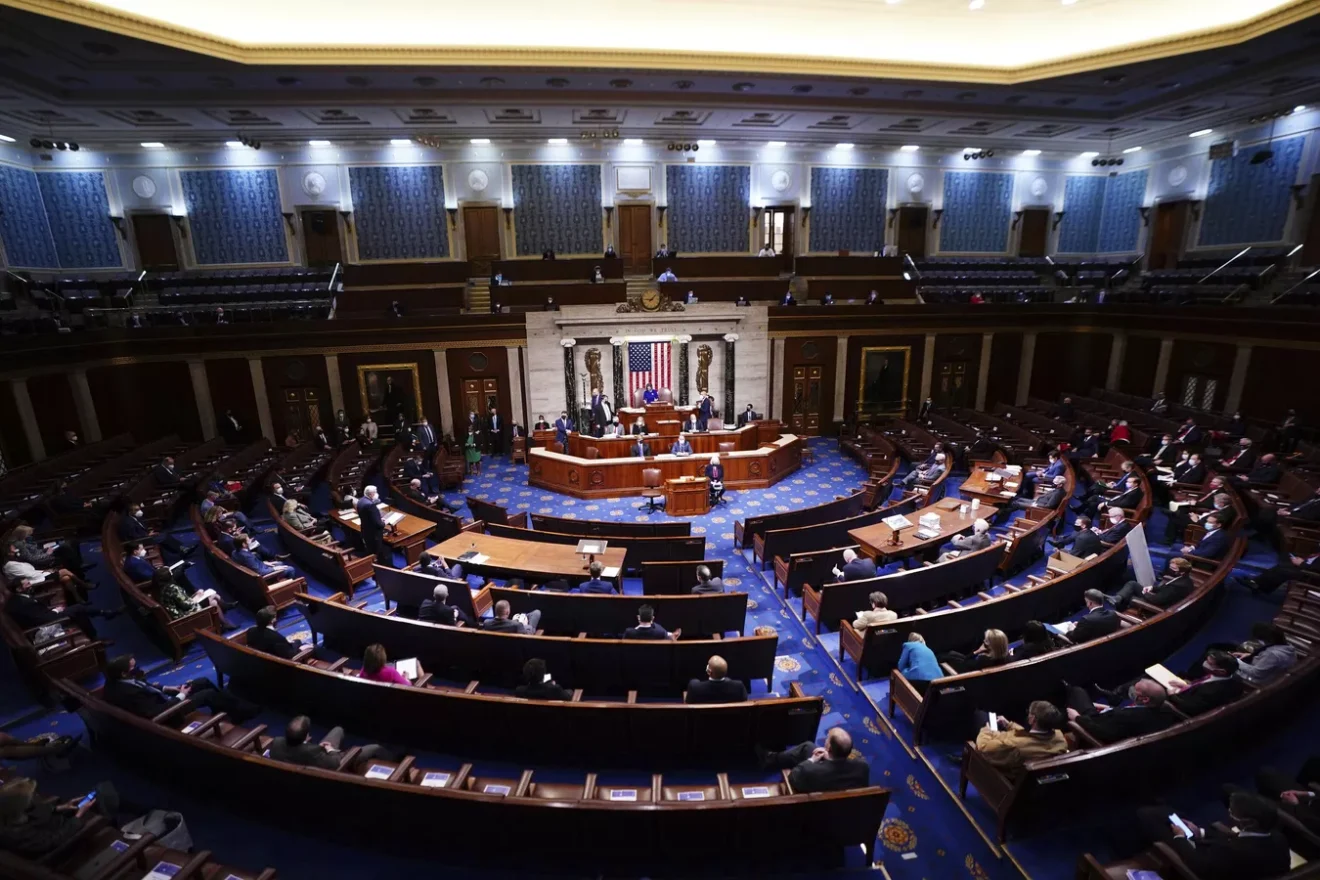
In this January 6, 2021, file photo, Nancy Pelosi speaks in the US House Chamber after they reconvened for arguments over the objection to certifying Arizona's Electoral College votes in November's election, at the Capitol in Washington. Photo: Jim Lo Scalzo/Sputnik.
The US House of Representatives passed legislation on Saturday to transfer frozen Russian sovereign assets to Ukraine and ban TikTok unless it severs ties to its Chinese parent company.
House lawmakers passed the bill, dubbed the 21st Century Peace through Strength Act, in a vote of 360 in favor and 58 opposed.
The legislation allows the executive branch to transfer frozen Russian sovereign assets to Ukraine, sanctions Iran, disrupts the ability of Palestinian organization Hamas to fund terrorism and sanctions entities involved in international fentanyl trafficking.
Moreover, the bill prevents app stores or web hosting services in the United States from featuring TikTok unless it severs ties to Chinese parent company ByteDance.
Russia views attempts by the US and EU to seize Russian assets as theft and also an act of trade war, and Foreign Ministry spokeswoman Maria Zakharova has warned that Moscow would have a tough response to such an escalation of economic aggression.
https://orinocotribune.com/us-house-pas ... o-ukraine/
******
DMITRY TRENIN: RUSSIA IS UNDERGOING A NEW, INVISIBLE REVOLUTION
APRIL 22, 2024 NATYLIESB
By Dmitry Trenin, RT, 4/2/24
When President Vladimir Putin, back in February 2022, launched Russia’s military operation in Ukraine, he had specific, but limited objectives in mind. It was essentially about assuring Russia’s security vis-à-vis NATO.
However, the drastic, expansive and well-coordinated Western reaction to Moscow’s moves – the torpedoing of the Russo-Ukrainian peace deal and the mounting escalation of the US-led bloc’s involvement in the conflict, including its role in deadly attacks inside Russia – have fundamentally changed our country’s attitude towards our former partners.
We no longer hear talk about “grievances” and complaints about “failures in understanding.” The last two years have produced nothing less than a revolution in Moscow’s foreign policy, more radical and far-reaching than anything anticipated on the eve of the Ukraine intervention. Over the past 25 months, it has been quickly gaining in strength and profundity. Russia’s international role, its position in the world, its goals and methods of reaching them, its basic worldview – all are changing.
The national foreign policy concept, signed by Putin just a year ago, represents a major departure from its predecessors. It establishes the country’s identity in terms of it being a distinct civilization. In fact, it is the first official Russian document to do so. It also radically transforms the priorities of Moscow’s diplomacy, with the countries of the post-Soviet ‘near abroad’ on top, followed by China and India, Asia and the Middle East, and Africa and Latin America.
Western Europe and the United States rank next to last, just above the Antarctic.
Unlike in the previous decade, when Russia’s “turn to the east” was first announced, these are not just words. Our trade partners, not just political interlocutors, have also switched places. In just two years, the European Union, which only recently accounted for 48% of foreign trade, is down to 20%, whereas Asia’s share has soared from 26% to 71%. Russia’s use of the US dollar has also plummeted, with increasingly more transactions being conducted in Chinese yuan and other non-Western currencies such as the Indian rupee, the UAE dirham, as well as the instruments of our partners in the Eurasian Economic Union, and the ruble itself.
Russia has also ended its long and tiresome efforts to adapt to the US-led world order – something which it enthusiastically embraced in the early 1990s, grew disillusioned about in the following decade, and unsuccessfully tried to establish a modus vivendi with in the 2010s. Instead of surrendering to a post-Cold War set-up, in which it was left with no say, Russia has begun pushing back more and more against the hegemonic US-centered system. For the first time since the Bolshevik Revolution, albeit in a very different way from then, the country has de facto become a revolutionary power. While China still seeks to improve its position in the existing world order, Russia sees that state-of-affairs as being beyond repair, and is instead seeking to prepare for a new alternative arrangement.
For the time being, instead of the “one world” concept, which the Soviet Union even accepted in 1986, under Gorbachev, Moscow’s contemporary foreign policy has now split into two. For Russian policymakers, the post-2022 West has turned into a “house of adversaries,” while partners for Russia can only be found in the countries of the non-West, for whom we have coined a new description, “the World Majority.” The criterion for being included the group is simple: non-participation in the anti-Russia sanctions regime imposed by Washington and Brussels. This majority of over 100 nations is not considered a pool of allies: the depth and warmth of their relations with the Russia vary greatly, but these are the countries that Moscow can do business with.
For many decades, our country has been exceedingly supportive of various international organizations; it sought to join as many clubs as possible. Now Moscow has to admit that even the United Nations, including its Security Council (which Russia, a veto-wielding permanent member, has traditionally hailed as the centerpiece of the world system), has turned into a dysfunctional theater of polemics. The Organization for Security and Cooperation in Europe (OSCE), which Moscow long wanted to see as the premier security instrument in Europe, is now nearly totally dismissed due to the anti-Russian stance of its NATO/EU majority membership. Moscow has quit the Council of Europe, and its participation in a number of regional groupings for the Arctic, the Baltic, the Barents and the Black Seas has been put on hold.
True, much of this has been the result of the West’s policy of trying to isolate our country, but rather than feeling deprived of something valuable, Russians have few regrets over having had to leave or to suspend membership. Very tellingly, having re-established the supremacy of national legislation over international treaties, Moscow now cares little about what its adversaries can say or do about its policies or actions. From Russia’s standpoint, not only can’t the West be trusted any longer; the international bodies that it controls have lost all legitimacy.
This attitude toward Western-dominated international institutions contrasts with the view of non-Western ones. This year, Russia’s presidency of the recently enlarged BRICS group is being marked by hyperactivity in preparations for hosting. Russia is also most supportive of the Shanghai Cooperation Organization, which its close ally Belarus is about to join. Together with countries in Asia, the Middle East, Africa and Latin America, it’s working closely to build new international regimes in a number of areas: finance and trade, standards and technology, information and health care. These are expressly being designed to be free from Western domination and interference. If successful, they can serve as elements of the future inclusive world order which Moscow promotes.
So, the changes in Russia’s foreign policy run very deep indeed. There is a question, however: how sustainable are they?
Above all, it should be noted that changes in foreign policy are an important, but also a relatively minor element of the wider transformation which is going on in Russia’s economy, polity, society, culture, values, and spiritual and intellectual life. The general direction and importance of those changes is clear. They are transforming the country from being a distant outlier on the fringes of the Western world into something which is self-sufficient and pioneering. These tectonic shifts would not have been possible without the Ukraine crisis. Having been given a powerful and painful push, now they have acquired a dynamic of their own.
It’s true that February 2022 itself was the end result of several trends that had been gathering momentum for about a decade. Feelings that fuller sovereignty was desired finally became dominant after Putin’s return to the Kremlin in 2012 and the re-unification with Crimea in 2014. Some truly fundamental changes with regard to national values and ideology were made in the form of amendments to the Russian Constitution, approved in 2020.
In March 2024 Putin won a resounding victory in the presidential elections and secured a fresh six-year mandate. This should be seen as a vote of confidence in him as the supreme commander-in-chief in the existential struggle (as Putin himself describes it) against the West. With that backing, the president can proceed with even deeper changes – and must make sure that those he has already wrought are preserved and built upon by those who succeed him in the Kremlin.
It is important to note that the Russian elites, which since the 1990s have been closely tied to the West, have had to make a hard choice recently between their country and their assets. Those who decided to stay have had to become more “national” in their outlook and action. Meanwhile, Putin has launched a campaign to form a new elite around the Ukraine war veterans. The expected turnover of Russian elites, and the transformation from a cosmopolitan group of self-serving individuals into a more traditional coterie of privileged servants of the state and its leader would make sure that the foreign policy revolution is complete.
Finally, Russia may not have been able to start moving so quickly in the direction of sovereignty had it not been for the Western policies of the past two decades: the increasing demonization of the country and its leadership. These choices have succeeded in making perhaps the initially most Westernizing, pro-European leadership that modern Russia has seen – including notably Putin himself and Dmitry Medvedev – into self-avowed anti-Westerners and determined opponents of US/EU policies.
Thus, rather than forcing Russia change to fit a Western pattern, all that pressure has instead helped the country find itself again.
https://natyliesbaldwin.com/2024/04/dmi ... evolution/
******
Georgia Fight Against US Subversion & its Implications Worldwide
Posted by INTERNATIONALIST 360° on APRIL 22, 2024
Brian Berletic
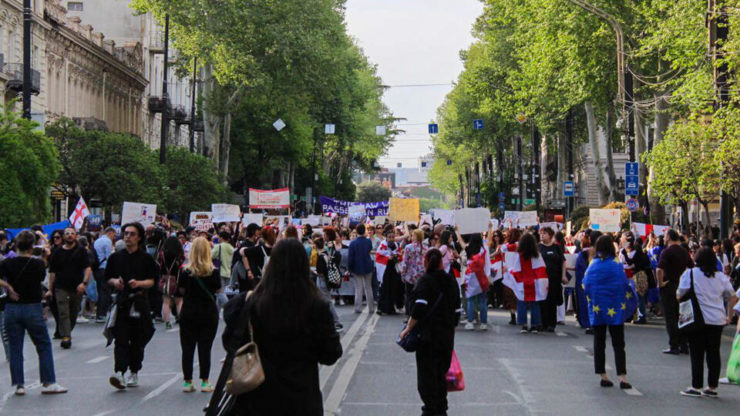
Throughout the 21st century, the United States has invaded and occupied multiple nations, including Afghanistan in 2001, Iraq in 2003, and Syria in 2014. It has also led to military interventions rendering once prosperous nations into failed states, including Libya from 2011 onward.
Beyond this more destructive and direct approach, the US has also admittedly interfered in the internal political affairs of other nations, attempting to overthrow elected governments and install client regimes in their place.
In a 2004 Guardian article titled, “US campaign behind the turmoil in Kiev,” it admitted (emphasis added):
…the campaign is an American creation, a sophisticated and brilliantly conceived exercise in western branding and mass marketing that, in four countries in four years, has been used to try to salvage rigged elections and topple unsavoury regimes.
Funded and organised by the US government, deploying US consultancies, pollsters, diplomats, the two big American parties and US non-government organisations, the campaign was first used in Europe in Belgrade in 2000 to beat Slobodan Milosevic at the ballot box.
Richard Miles, the US ambassador in Belgrade, played a key role. And by last year, as US ambassador in Tbilisi, he repeated the trick in Georgia, coaching Mikhail Saakashvili in how to bring down Eduard Shevardnadze.
Ten months after the success in Belgrade, the US ambassador in Minsk, Michael Kozak, a veteran of similar operations in central America, notably in Nicaragua, organised a near identical campaign to try to defeat the Belarus hardman, Alexander Lukashenko..
This startling admission exposes the US government as deeply involved in interfering in and subverting the political independence of not one, but multiple, nations in Eastern Europe.
The same article admits that the US government achieves this through funds distributed by the National Endowment for Democracy’s (NED) many subsidiaries, including the International Republican Institute (IRI), National Democratic Institute (NDI), and Freedom House. It also mentions adjacent private foundations like George Soros’ Open Society Foundation.
The admitted interference aimed at regime change and the political capture of targeted nations – where roles reversed, and it was the US or its allies targeted by such interference by say Russia or China – would elicit an immediate and severe response. Already, the collective West possesses some of the strictest laws regulating foreign interference.
The United States maintains the Foreign Agents Registration Act, established all the way back in 1938, requiring foreign-funded organizations to register with the US government and disclose their funding or face severe penalties including lengthy jail terms.
It is no surprise that many other nations around the globe have adopted similar legislation. After all, a nation’s political independence is guaranteed under the United Nations Charter, as is a nation’s right to defend it.
Other nations who have failed to pass such legislation have found themselves overwhelmed by US and European-funded organizations and opposition groups who are able to block or push agendas, including legislation, suiting Western interests at the explicit expense of the targeted nation.
The temptation of these nations to pass long-overdue legislation to put in check Western interference the West itself would never tolerate within its own borders, is high, and several nations have attempted to do so in recent years.
Target Georgia
The Caucasus nation of Georgia is now in Western headlines for trying to do exactly this.
Having already suffered immensely from both US and European interference but also political capture and use by the West in a disastrous but short proxy war with neighboring Russia in 2008, some in the capital of Tbilisi are eager to finally close loopholes that have allowed foreign-fuelled subversion to flourish.
CNN in its recent article, “Georgia presses on with Putin-style ‘foreign agent’ bill despite huge protests,” ironically attempts to conflate Georgia’s legitimate desire to root out foreign interference with a nebulous inference of “Russian” interference instead. Nowhere is it mentioned that these “huge protests” are led by US government-funded opposition figures.
The article claims that Georgia’s law mirrors Russia’s own foreign agent law, failing to point out that both pieces of legislation closely mirror the United States’ own Foreign Agents Registration Act.
Other articles like Eurasianet’s, “Far from FARA? Georgia’s foreign agent law controversy,” attempt to claim Georgia’s bill is different from the US Foreign Agents Registration Act, claiming that:
One crucial difference is that FARA does not require registration simply on grounds of foreign funding. Rather, one must be an agent of a foreign principal, including if one acts at the direction and control of a foreign government.
And that:
While the U.S. law focuses on political lobbying, the Georgia law will primarily affect the nation’s vibrant civil society that donors have nurtured for decades.
But as The Guardian’s 2004 article admitted, the supposed “civil society” the US government and others are funding in targeted nations including Georgia are involved specifically in regime change “funded and organized by the US government,” amounting to foreign interference even by the US’ own definition.
It should be pointed out that Eurasianet itself is funded by the US government through the NED.
In fact, the vast majority of the political opposition groups inside Georgia and media organizations beyond Georgia’s borders criticizing the legislation are funded by the US government. They are opposed to Georgia’s foreign agent bill not because it will encroach upon actual freedom and democracy, and specifically Georgia’s own self-determination, but precisely because it will create a significant obstacle for US interference.
The growing “domestic” pressure placed on Georgia’s government is an illustration of just how much control over Georgia’s internal political affairs the US has and how urgent it is to pass legislation that will expose and eliminate such interference.
Not Just Georgia
Other nations have gone through a similar process. Russia successfully reduced foreign interference in its political space with its own foreign agent law.
The Southeast Asian Kingdom of Thailand attempted to pass a similar law in 2021. Just as the US is doing now in regard to Georgia, it mobilized US-funded opposition groups and media platforms inside Thailand, and media and “rights” organizations beyond Thai borders to place pressure on the Thai government to abandon the legislation and preserve a permissive environment for foreign interference.
A 2021 Thai PBS article titled, “Thailand’s NGO law: Uprooting foreign influence or gagging govt critics?,” would include a photo of a rally led by a US government-funded organization called “iLaw” and cite criticism regarding its US government funding. The organization was attempting to petition for a complete rewrite of Thailand’s constitution. Despite the obvious gravity of a foreign-funded organization attempting to rewrite Thailand’s most central and sensitive document, Thai PBS attempted to brush off the concern behind the NGO law as “paranoia.”
Thai PBS, despite being funded by the Thai government itself, has a disproportionate number of employees educated in and sympathetic to the US and Europe. Many employees are drawn from or move on to the Western media or organizations funded by the US government. It is another illustration of just how dangerous foreign interference actually is, and how far off course it can push a nation from protecting its own best interests, including its own sovereignty and political independence.
Another organization, Fortify Rights, published an article in 2022 titled, “Fortify Rights submits concerns to Thai government over draft NGO law.” Just as is the case with Eurasianet, Fortify Rights is likewise funded by the US government through the NED, as documented in the organization’s own 2015 annual report.
The letter echoed Thai PBS’ argument, which uncoincidentally is the same argument made by the US State Department itself in regard to Georgia’s current legislation.
A March 2023 post on the US Embassy in Georgia’s website quotes then US State Department spokesman Ned Price making all the same arguments seen across the Western media and US-funded organizations in both Georgia and Thailand past and present regarding their respective foreign interference laws.
Price makes the claim that the US Foreign Agents Registration Act only concerns agents of other governments, while claiming US and European-funded organizations and individuals are not somehow being directed by Washington or Brussels.
While Price, Eurasianet, Thai PBS, and Fortify Rights all try to portray laws confronting foreign interference as a threat to “democracy” and “human rights,” a nation’s ability to determine its political matters itself, without external interference, is one of the most important human rights of all. The foundation of genuine human freedom is self-determination.
For Thailand, the collective pressure of US-funded groups inside Thai borders and beyond them succeeded in forcing the Thai government at the time to abandon the NGO law. US and European-funded opposition groups continue unchecked interference in Thailand’s internal political affairs, as well as interfering in and undermining the integrity of Thailand’s institutions, including its legal and education system.
Washington and its proxies’ attempts to vilify a nation for protecting its freedom to decide its internal political affairs itself, including how it decides to protect its political independence, is itself evidence of just how extensive and dangerous US interference is abroad and how important it is for nations to defend against it with foreign agent bills and foreign-funded NGO laws.
Only time will tell whether or not Georgia is able to both pass this legislation and successfully implement it, restoring national sovereignty and political independence stripped from it by US interference and political capture. Should Georgia succeed where Thailand failed, perhaps it will encourage other nations to follow suit, including nations that have already tried but failed to do so in recent years, including Thailand.
https://libya360.wordpress.com/2024/04/ ... worldwide/
